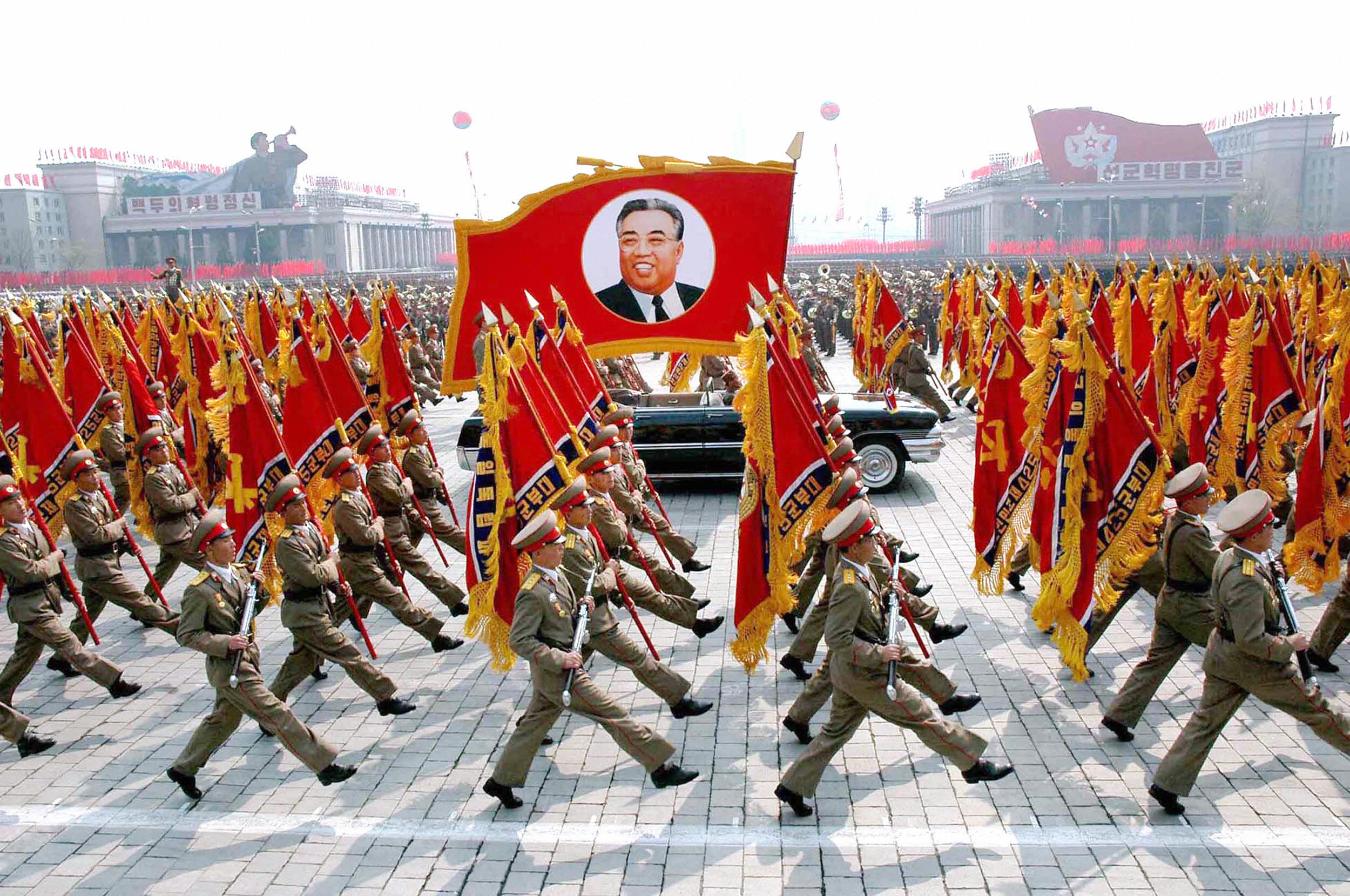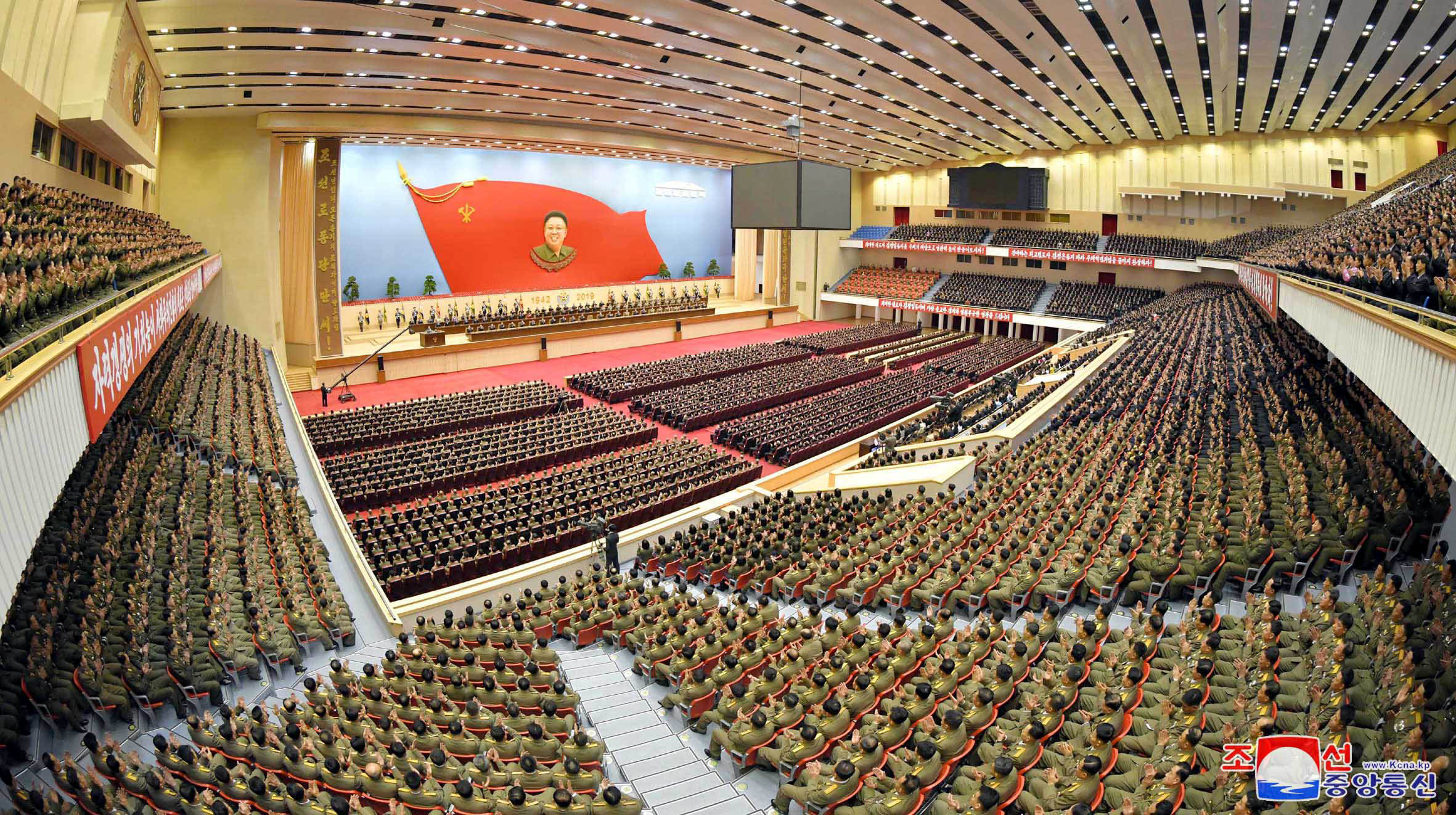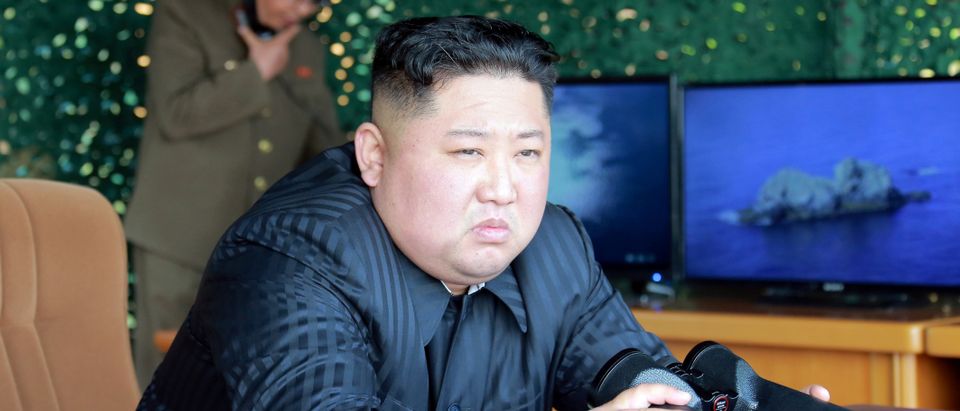CNN reported Monday that North Korean Supreme Leader Kim Jong Un was “in grave danger” following a cardiovascular surgery.
Both South Korean and Chinese officials have since refuted the claims that Kim is in ill health, and the South Korean sources have reported that there has been no suspicious activity from North Korea that might indicate any health concerns regarding the supreme leader.
However, the apparent health scare raises the important question — who succeeds Kim as supreme leader if he dies young?
There are numerous contenders — from distant family members to party loyalists to one of Kim’s young children — for the position of supreme leader if Kim’s health continues to deteriorate.
Multiple reports have come out on Kim’s poor health and lifestyle. Kim is reportedly a heavy smoker and drinker like his predecessor and father, Kim Jong Il. Anna Fifield, Beijing bureau chief for the Washington Post and author of a book on Kim’s life, described the dictator as “a heart attack waiting to happen.” (RELATED: National Security Advisor Confirms White House ‘Closely’ Monitoring Kim Jong Un’s Health — Says Successor Will Likely Be In The ‘Family’)
The Kim family holds an almost divine status within North Korea. Kim’s grandfather, Kim Il Sung, founded the country in 1945 after a long guerilla campaign against the Japanese during World War II. Both the site of his birth, a small village outside the capital Pyongyang, and the mountain where he staged his guerilla actions against the Japanese, have become sites of pilgrimage for North Koreans. All members of the Kim family have been incorporated into the pervasive cult of personality that dominates North Korean propaganda and culture, with statues and public holidays commemorating each major event in both Kim Il Sung and Kim Jong Il’s life.

This 25 April 2007 picture, released from Korean Central News Agency 26 April, shows North Korean soldiers, carrying a large portrait of late North Korean leader Kim Il Sung, marching during a grand military parade. AFP PHOTO / KCNA via KNS (Photo credit should read KCNA/AFP via Getty Images)
Given the Kim family’s status within the North Korean state, the most likely successor to Kim would be another member of the family. The Ten Principles for the Establishment of a Monolithic Ideological System, the governing rules of North Korea, imply that the supreme leadership must stay within the Kim family.
“We must pass down the great achievement of the revolution by the Great Leader comrade Kim Il-sung from generation to generation, inheriting and completing it to the end,” the 10th principle says. However, due to the lack of specific information on the Kim family, it is difficult to ascertain who in the family would be a lead contender.
Kim has eliminated many of his close relatives, narrowing the number of possible successors from the Kim family. Jang Song-thaek, Kim’s uncle and second-in-command of the North Korean military, was executed on Kim’s orders in 2013 for “treachery.” Song-thaek was stripped of all official rank and positions within the North Korean government and he was digitally removed from pictures with other North Korean leaders. Kim is also widely believed to have ordered the 2017 assassination of his older half-brother Kim Jong-nam with the nerve agent VX in Malaysia. Jong-nam had been first in line to succeed his father until he fell out of favor after trying to visit Tokyo Disneyland in 2001.
It is still unclear how many wives or children either Kim Il Sung or Kim Jong Il had. Kim Jong Un currently has only one confirmed wife, Ri Sol Ju, and is believed to have three children with her. The direct succession from father to son is well established, and would most likely continue after Kim’s death if he has a son. However, the oldest known child of Kim and his wife, reportedly a son, was born in 2010, making him far too young to take over the country if Kim dies soon.
There has been speculation that Kim’s sister, Kim Yo Jong, could take over the country in the event of her brother’s early death. She is considered to be largely responsible for Kim’s public relations efforts. Yo Jong became the first member of the Kim family to visit South Korea since the Korean War when she attended the 2018 Winter Olympics in Pyeongchang, meeting with Vice President Mike Pence and South Korean President Moon Jae-in. Yo Jong also participated in the 2018 U.S.-North Korea summit in Singapore and the 2019 summit in Hanoi, Vietnam.
Though some women from the Kim family have achieved reverential status among the North Korean people, most notably Kim Il Sung’s wife, and communism preaches equality of gender, North Korea remains a largely patriarchal society.
And the succession of a woman to the position of supreme leader is unlikely given current North Korean cultural attitudes.
The most likely person to take power in the event of Kim’s death is Vice Marshal Choe Ryong-hae.
Ryong-hae previously served as the second-in-command of the North Korean military and is currently the president of the Presidium of the Supreme People’s Assembly, the council of executive officers that oversees North Korea’s legislative body. He also serves as one of the vice chairmen of the Workers’ Party of Korea. In October 2017, Ryong-hae was appointed director of the Organization and Guidance Department (OGD), the agency for all state censorship. Up until the appointment of Ryong-hae, directors of the OGD were exclusively members of the Kim family, possibly indicating his power within the regime.

Delegates take part in a national meeting to celebrate the 77th birth anniversary of former North Korean leader Kim Jong-il at Pyongyang Indoor Stadium in Pyongyang, North Korea in this February 15, 2019 KCNA Photo. KCNA via REUTERS
Additionally, there are over a dozen other vice chairmen of the Workers’ Party of Korea who also hold other government posts and military officers who could gather enough support to become contenders for the leadership position.
Speculation about political power structures within North Korea is difficult since very little information about the inner workings of the North Korean government has reached the West and it is unclear which officials other than the supreme leader have strong enough constituencies or formal power within the government to actually wield power. (RELATED: North Korea Says Biden Should Be Beaten ‘With A Stick’ For Calling Kim Jong Un A ‘Murderous Dictator’)
Given the special reverence for the Kim family in North Korea, Kim’s official successor would most likely be one of his children. However, if none of his children are old enough to control the country when Kim dies, one of the top-ranking officials within the government, such as Ryong-hae or Pyong So, might rule the country as an unofficial regent until the younger Kim comes of age. Control over a young Kim successor might result in political instability and factionalism within the North Korean state as different officials engage in political intrigue to gain favor with or control over Kim’s successor.
However, even if he is incapacitated by health problems, Kim is unlikely to be removed from power by top government officials before his actual death.
The Kim regime has effectively rendered itself immune to internal coups by installing officials in positions of power based on loyalty instead of competence and creating numerous competing commissions, committees and departments with overlapping jurisdictions and varying degrees of power over state affairs.
This structure may look like bureaucratic inefficiency, but it works to play each of these power bases off against each other instead of against the supreme leader. Without any clear chain of command within the North Korean government outside of the supreme leader, a massive power struggle among the top party officials in North Korea would be almost guaranteed without a clear line of succession. This fragile political equilibrium that is only maintained by a Kim, along with the fanatical cult of personality around the Kim family, discourages any political opposition from openly forming or trying to stage a coup to remove Kim from power.
If Kim Jong Un dies before naming an official heir or before one of his children reaches maturity, the political situation in North Korea could become extremely volatile, placing its nuclear weapons at risk and increasing the chance of destabilization in the region.


